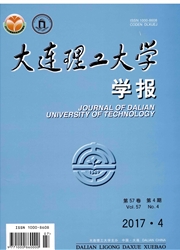

 中文摘要:
中文摘要:
研究了益智仁中提取的原儿茶酸对人脂肪干细胞(hADSCs)体外迁移的影响.实验采用明胶包被的Transwell细胞培养池,观察到适宜浓度的原儿茶酸可显著促进人脂肪于细胞体外迁移,其作用呈现明显剂量依赖性.同时,1.5mmol/L原儿茶酸促进hADSCs迁移的作用最强且呈现时间依赖性.RT-PCR和荧光定量PCR结果显示,经原儿茶酸处理后,人脂肪干细胞膜型基质金属蛋白酶-1(MT1-MMP)的表达明显升高.酶谱分析发现,经原儿茶酸处理后,干细胞的活性型基质金属蛋白酶-2(MMP-2)增加.抗体阻断实验显示,细胞迁移能力的增强与MT1-MMP的表达升高和MMP-2的活化增强有关.最后,人脂肪干细胞鉴定结果表明,经原儿茶酸处理后的人脂肪干细胞仍保持间充质干细胞多分化潜能的特性.因此,原儿茶酸有可能在脂肪干细胞移植的治疗中发挥作用.
 英文摘要:
英文摘要:
The effect of protocatechuic acid (PCA) from Alpinia oxyphylla on the celt migration of human adipose tissue-derived stromal cells (hADSCs) was studied. It was found that PCA could promote the migration capacity of hADSCs through Transwell coated with gelatin in vitro. PCA enhanced the cell migration in a dose-dependent manner. Meanwhile, the optimal effect of PCA was observed at 1.5 mmol/L, and the cell migration rate increased in a time-dependent manner with treatment of PCA (1.5 mmol/L). RT-PCR and quantitative RT-PCR analysis revealed the elevation of membrane-type matrix metalloproteinase-1 (MT1-MMP) mRNA expression in PCA-treated hADSCs. In cell supernatants of PCA-treated hADSCs, the active matrix metalloproteinase-2 (MMP-2) increased compared with control cells, as detected by zymography. The results of antibody blocking experiments show that the promotion of cell migration by PCA is effectively and obviously inhibited by MT1-MMP or MMP-2 antibodies. Furthermore, after PCA treatment, hADSCs still retain their functional characteristics of multipotential mesenchymal progenitors. The cell migration enhancement of hADSCs with PCA suggests the possibility that PCA may be useful in hADSCs-mediated therapy.
 同期刊论文项目
同期刊论文项目
 同项目期刊论文
同项目期刊论文
 Effect of protocatechuic acid from Alpinia oxyphylla on proliferation of human adipose tissue-derive
Effect of protocatechuic acid from Alpinia oxyphylla on proliferation of human adipose tissue-derive Effective expansion of umbilical cord blood hematopoietic stem/progenitor cells by regulation of mic
Effective expansion of umbilical cord blood hematopoietic stem/progenitor cells by regulation of mic Optimization of Primary Culture Condition for Mesenchymal Stem Cells Derived from Umbilical Cord Blo
Optimization of Primary Culture Condition for Mesenchymal Stem Cells Derived from Umbilical Cord Blo Effects of encapsulated rabbit mesenchymal stem cells on ex vivo expansion of human umbilical cord b
Effects of encapsulated rabbit mesenchymal stem cells on ex vivo expansion of human umbilical cord b Preparation, fabrication and biocompatibility of novel injectable temperature-sensitive chitosan/gly
Preparation, fabrication and biocompatibility of novel injectable temperature-sensitive chitosan/gly Enhancement of Adipose-Derived Stem Cell Differentiation in Scaffolds with IGF-I Gene Impregnation U
Enhancement of Adipose-Derived Stem Cell Differentiation in Scaffolds with IGF-I Gene Impregnation U Microencapsulated Osteoblasts Support Hematopoietic Stem/Progenitor Cell Expansion in Hypoxic Enviro
Microencapsulated Osteoblasts Support Hematopoietic Stem/Progenitor Cell Expansion in Hypoxic Enviro Simultaneous expansion and harvest of hematopoietic stem cells and mesenchymal stem cells derived fr
Simultaneous expansion and harvest of hematopoietic stem cells and mesenchymal stem cells derived fr Collagen-chitosan polymer as a scaffold for the proliferation of human adipose tissue-derived stem c
Collagen-chitosan polymer as a scaffold for the proliferation of human adipose tissue-derived stem c Differentiation Enhancement of ADSC in Scaffolds With IGF-1 Gene Impregnation Under Dynamic Microenv
Differentiation Enhancement of ADSC in Scaffolds With IGF-1 Gene Impregnation Under Dynamic Microenv Investigation of the effective action distance between hematopoietic stem/progenitor cells and human
Investigation of the effective action distance between hematopoietic stem/progenitor cells and human Optimization for dissociation and culture of mesenchymal stem cells derived from umbilical cord Bloo
Optimization for dissociation and culture of mesenchymal stem cells derived from umbilical cord Bloo 期刊信息
期刊信息
